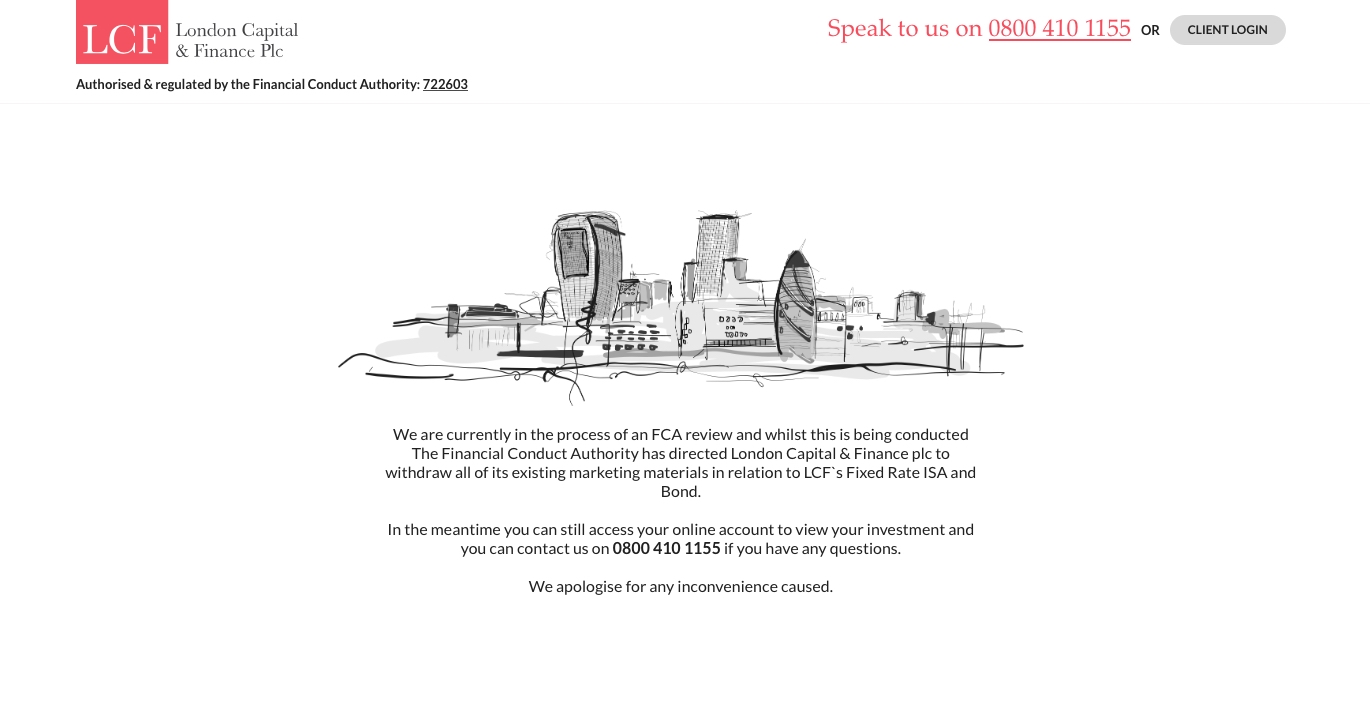The FCA will introduce nine major reforms following publication of the damning Gloster Report into its handling of the £236m collapse of mini-bond provider London Capital & Finance (LCF).
The report, carried out by former judge Dame Elizabeth Gloster, found the FCA failed to protect LCF investors. It found major weaknesses in regulation.
LCF ripped off more than 11,600 investors by encouraging them to invest £236m in non-regulated ‘mini-bonds’ before it collapsed. It had both regulated and non-regulated arms.
The FCA says it has accepted all nine recommendations in the Gloster Report.
These include:
- The FCA should direct staff responsible for authorising and supervising firms, in appropriate circumstances, to consider a firm’s business “holistically”
- The FCA should ensure that its Contact Centre policies clearly state that call-handlers: (i) should refer allegations of fraud or serious irregularity to the Supervision Division, even when the allegations concern the non-regulated activities of an authorised firm; (ii) should not reassure consumers about the non-regulated activities of a firm based on its regulated status; and (iii) should not inform consumers (incorrectly) that all investments in FCA-regulated firms benefit from FSCS protection
- The FCA should provide appropriate training to relevant teams in the Authorisation and Supervision Divisions on how: (i) to analyse a firm’s financial information to recognise circumstances suggesting fraud or other serious irregularity; and (ii) when to escalate cases to specialist teams within the FCA.
- The senior management of the FCA should ensure that product and business model risks, which are identified in its policy statements and reviews as being current or emerging, and of sufficient seriousness to require ongoing monitoring, are communicated to and appropriately taken into account by staff involved in the day-to-day supervision and authorisation of firms.
- The FCA should have appropriate policies in place which clearly state what steps should be taken or considered following repeat breaches by firms of the financial promotion rules.
- The FCA should ensure that its training and culture reflect the importance of the FCA’s role in combatting fraud by authorised firms.
- The FCA should take steps to ensure that, to the fullest extent possible: (i) all information and data relevant to the supervision of a firm is available in a single electronic system such that any red flags or other key risk indicators can be easily accessed and cross-referenced; and (ii) that system uses automated methods (e.g. artificial intelligence/machine learning) to generate alerts for staff within the Supervision Division when there are red flags or other key risk indicators.
- The FCA should take urgent steps to ensure that all key aspects of the DES Programme that relate to the supervision of flexible firms are now fully embedded and operating effectively.
- The FCA should consider whether it can improve its use of regulated firms as a source of market intelligence.
Nikhil Rathi, chief executive of the FCA, said: “Having joined the FCA as Chief Executive in October, these reports into historic events make sobering reading.
“My colleagues and I are committed to implementing the recommendations and lessons learned which will require significant and necessary changes to the way we regulate, our use of data and intelligence, and our culture.
“We know that the FCA must make faster and more effective decisions, prioritise the right outcomes for consumers, markets and firms, and reform our approach to intelligence and information sharing. Our continuing action plan, specifically on our wider transformation programme and high-risk consumer investments, seeks to do this.”
“The FCA is always going to have to make difficult risk-based choices about where to allocate resources and to strike a balance between regulatory action and consumer choice and responsibility. I hope that the mistakes the FCA made in these cases do not detract from the work and dedication of my colleagues over several years.”
Mr Rathi outlined key actions the FCA will take over the next six months:
- Restructuring the FCA to join up its policy, supervision and competition functions under two new executive directors ”
- Become a more data-enabled regulator through the recruitment of a chief data, information and intelligence Officer
- Undertake a “use it or lose it” exercise, with firms that have not used their regulatory permissions to earn any regulated income for the last 12 months at risk of having their authorisation revoked
- Take forward new measures to tackle pension scams with DWP, once the Pension Schemes Bill has received Royal Assent;
- Enhance training for all frontline Supervisory, Authorisation and Enforcement staff, who will have completed mandatory training on ‘FCA Powers and Unregulated Activities’, ‘Financial Accounting’ and ‘Business Model Analysis’ by the end of the first quarter next year
- Recruit additional prudential specialists to act as quality assurance and assess firms with complex business models, including where they combine regulated and unregulated activity, within the Authorisation Division;
- Work with the Government to tackle scams advertised and promoted on Google and other online platforms; and
- Disrupt scams and warn consumers of the risks by stepping up its own consumer campaigns, including ScamSmart and targeted digital activity.
The FCA has also recently made permanent the temporary restrictions imposed on the marketing of speculative illiquid securities, such as those issued by LCF.
The FCA has invited Dame Elizabeth Gloster and Raj Parker, the Independent Reviewers, to meet with its senior leadership to hear “frankly” from them about their recommendations.

